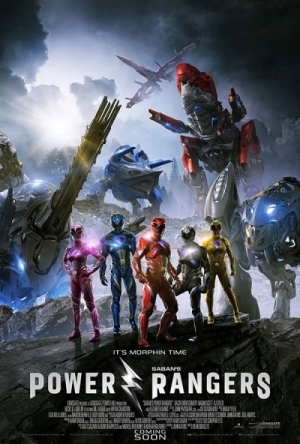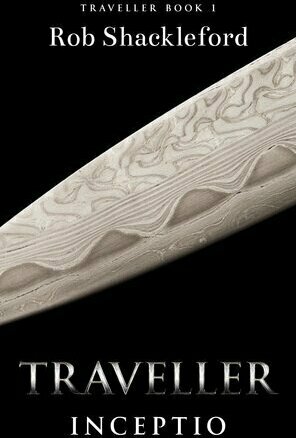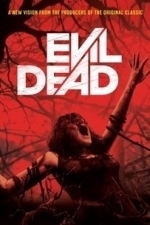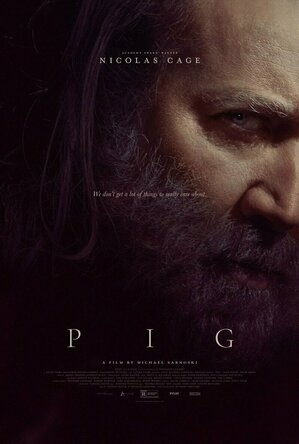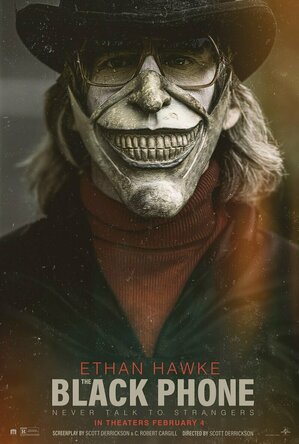Search
Search results
Sophia (Bookwyrming Thoughts) (530 KP) rated Imperfect Chemistry (Imperfect, #1) in Books
Jan 23, 2020
<b><i>Imperfect Chemistry</i> might be one of those few New Adult romance novels that I actually really enjoyed...</b>
In the first of Mary Frame's <i>Imperfect</i> series, Lucy London has to come up with an experiment testing how emotions work as a pathogen a nearly impossible feat since she never had a normal childhood in the first place. She's an absolute genius in college since thirteen and has a doctorate at twenty or twenty-one.
From the very beginning, <b>Lucy is introduced to us as someone who sounds like a textbook and speaks in tones that are formal.</b> The whole <a title="Out of the Cave by Cotton E. Davis" href="https://bookwyrmingthoughts.com/review-out-of-the-cave-by-cotton-e-davis/"; target="_blank" rel="noopener noreferrer">textbook aspect doesn't backfire</a> here it's pretty much expected from someone who's been in college for awhile. In the process of trying to come up with a hypothesis for her experiment, Lucy tries to become as normal as possible. I personally thought <b>Lucy is absolutely adorable in her attempts to become "normal."</b> She has a desire to run away around those who cry because she has no clue what to do and the whole "solve heartbreak with PJs and ice cream" experience she has with Taylor Swift quotes mixed in with her usual technicalities.
She's <b>very much like David in <i><a title="The Sorcerer's Apprentice" href="https://bookwyrmingthoughts.com/movie-review-the-sorcerers-apprentice/"; target="_blank" rel="noopener noreferrer">The Sorcerer's Apprentice</a></i></b> they're both socially awkward, and Lucy definitely has her <b>moments in the book where her extremely awkward side comes out.</b> Lucy just has other moments where <b>her attempt to become normal is cute, hilarious, and funny</b> it's just a lot of fun reading how she becomes more social, experiences emotions, and makes some friends at her university instead of wallowing away in loneliness.
<b>The romance in <i>Imperfect Chemistry</i> went hand in hand with the overall plot of the story</b> Lucy's experiment isn't exactly on love, but <b>Frame factors in the romance nicely.</b> Jensen and Lucy certainly don't banter or have a <a title="Read Sophia's Confessions of a Queen B* review" href="https://bookwyrmingthoughts.com/blog-tour-confessions-of-a-queen-b-by-crista-mchugh-review-and-giveaway/"; target="_blank" rel="noopener noreferrer">very entertaining relationship like Alexis and Brett do</a>, but they have an <b>in-depth relationship rather than the whole "finally notice each other and think the other is hot, have sex, live happily ever after" or the whole emotional baggage consisting of running away from the past.</b>
I think it's just Lucy in general she's simply too adorable for words.
<a href="https://bookwyrmingthoughts.com/review-imperfect-chemistry-by-mary-frame/"; target="_blank">This review was originally posted on Bookwyrming Thoughts</a>
In the first of Mary Frame's <i>Imperfect</i> series, Lucy London has to come up with an experiment testing how emotions work as a pathogen a nearly impossible feat since she never had a normal childhood in the first place. She's an absolute genius in college since thirteen and has a doctorate at twenty or twenty-one.
From the very beginning, <b>Lucy is introduced to us as someone who sounds like a textbook and speaks in tones that are formal.</b> The whole <a title="Out of the Cave by Cotton E. Davis" href="https://bookwyrmingthoughts.com/review-out-of-the-cave-by-cotton-e-davis/"; target="_blank" rel="noopener noreferrer">textbook aspect doesn't backfire</a> here it's pretty much expected from someone who's been in college for awhile. In the process of trying to come up with a hypothesis for her experiment, Lucy tries to become as normal as possible. I personally thought <b>Lucy is absolutely adorable in her attempts to become "normal."</b> She has a desire to run away around those who cry because she has no clue what to do and the whole "solve heartbreak with PJs and ice cream" experience she has with Taylor Swift quotes mixed in with her usual technicalities.
She's <b>very much like David in <i><a title="The Sorcerer's Apprentice" href="https://bookwyrmingthoughts.com/movie-review-the-sorcerers-apprentice/"; target="_blank" rel="noopener noreferrer">The Sorcerer's Apprentice</a></i></b> they're both socially awkward, and Lucy definitely has her <b>moments in the book where her extremely awkward side comes out.</b> Lucy just has other moments where <b>her attempt to become normal is cute, hilarious, and funny</b> it's just a lot of fun reading how she becomes more social, experiences emotions, and makes some friends at her university instead of wallowing away in loneliness.
<b>The romance in <i>Imperfect Chemistry</i> went hand in hand with the overall plot of the story</b> Lucy's experiment isn't exactly on love, but <b>Frame factors in the romance nicely.</b> Jensen and Lucy certainly don't banter or have a <a title="Read Sophia's Confessions of a Queen B* review" href="https://bookwyrmingthoughts.com/blog-tour-confessions-of-a-queen-b-by-crista-mchugh-review-and-giveaway/"; target="_blank" rel="noopener noreferrer">very entertaining relationship like Alexis and Brett do</a>, but they have an <b>in-depth relationship rather than the whole "finally notice each other and think the other is hot, have sex, live happily ever after" or the whole emotional baggage consisting of running away from the past.</b>
I think it's just Lucy in general she's simply too adorable for words.
<a href="https://bookwyrmingthoughts.com/review-imperfect-chemistry-by-mary-frame/"; target="_blank">This review was originally posted on Bookwyrming Thoughts</a>
LeftSideCut (3776 KP) rated Power Rangers (2017) in Movies
Jan 31, 2020
Contains spoilers, click to show
About 85% of this reboot of the popular 90s show Power Rangers is quite a broody and charming enough story about a group of five (mostly outcast) teenagers finding a bond and friendship after discovering that they've be given superpowers. This is spliced with the odd training montage of them all learning how to harness their new found powers.
It pretty straightforward, and thanks the main cast, it's fairly enjoyable.
Lead by Jason (Stranger Things' Dacre Montgomery), the five friends are probably the main positive about the film.
As the movie draws on, we are teased with just enough Power Rangers material to keep the intrigue afloat - the presence of Zordon (Bryan Cranston), Alpha 5 (Bill Hader) and Rita Repulsa (Elizabeth Banks), glimpses of the Zords and so on, but the narrative never strays too far from this core theme of strength through friendship.
That is until the final act of course...
I'll admit that I felt a swelling of excitement when the Power Rangers finally appeared in full armour, kicking the shit out of faceless CGI henchman, but it's at this point that director Dean Israelite goes FULL POWER RANGERS. We even get the classic theme tune as the Rangers charge towards Goldar (eye burning CGI, but kind of cool) and Rita in their Zords (also kind of cool) but here in lies the main problem with the film as a whole.
The nostalgia is laid on so thick that it feels like a completely different film. With the first 3/4 being somewhat grounded in realism (sort of), with serious themes and relatable human characters, the final act of flat out Power Rangers absurdity doesn't quite gel. I have no problem with either approach, but I feel like maybe the writers should have picked one and stuck with it.
The well developed teenagers that we've spent and hour and half with at this point are suddenly wise cracking and quipping like there's no tomorrow. The big climatic battle looks ok, but it has that really overplayed Kanye West song obnoxiously blasting throughout (which just gave me *shudder* Suicide Squad vibes), and after being built up to be a genuinely threatening villain, Rita is easily dispatched by a big CGI bitchslap into CGI space, by the big CGI hand of the big CGI Megazord (still kind of cool).
It's just a little meh.
I have fond memories of Power Rangers from my childhood, and I realise that this modern retelling is also aimed at a younger audience, and in that respect I'm sure it's very entertaining, and I give credit to the writers for touching upon more adult issues, but overall, I wish it had been better. Power Rangers is silly, but it does genuinely have scope to be an epic franchise.
Final note - the running Krispy Kreme joke got old very quickly 🖕
It pretty straightforward, and thanks the main cast, it's fairly enjoyable.
Lead by Jason (Stranger Things' Dacre Montgomery), the five friends are probably the main positive about the film.
As the movie draws on, we are teased with just enough Power Rangers material to keep the intrigue afloat - the presence of Zordon (Bryan Cranston), Alpha 5 (Bill Hader) and Rita Repulsa (Elizabeth Banks), glimpses of the Zords and so on, but the narrative never strays too far from this core theme of strength through friendship.
That is until the final act of course...
I'll admit that I felt a swelling of excitement when the Power Rangers finally appeared in full armour, kicking the shit out of faceless CGI henchman, but it's at this point that director Dean Israelite goes FULL POWER RANGERS. We even get the classic theme tune as the Rangers charge towards Goldar (eye burning CGI, but kind of cool) and Rita in their Zords (also kind of cool) but here in lies the main problem with the film as a whole.
The nostalgia is laid on so thick that it feels like a completely different film. With the first 3/4 being somewhat grounded in realism (sort of), with serious themes and relatable human characters, the final act of flat out Power Rangers absurdity doesn't quite gel. I have no problem with either approach, but I feel like maybe the writers should have picked one and stuck with it.
The well developed teenagers that we've spent and hour and half with at this point are suddenly wise cracking and quipping like there's no tomorrow. The big climatic battle looks ok, but it has that really overplayed Kanye West song obnoxiously blasting throughout (which just gave me *shudder* Suicide Squad vibes), and after being built up to be a genuinely threatening villain, Rita is easily dispatched by a big CGI bitchslap into CGI space, by the big CGI hand of the big CGI Megazord (still kind of cool).
It's just a little meh.
I have fond memories of Power Rangers from my childhood, and I realise that this modern retelling is also aimed at a younger audience, and in that respect I'm sure it's very entertaining, and I give credit to the writers for touching upon more adult issues, but overall, I wish it had been better. Power Rangers is silly, but it does genuinely have scope to be an epic franchise.
Final note - the running Krispy Kreme joke got old very quickly 🖕
Night Reader Reviews (683 KP) rated Traveller-Inceptio ( Traveller Book 1) in Books
Mar 18, 2020
Honest Review for Free Copy of Book
Traveller Inceptio: Traveller Book 1 by Rob Shackleford is a hard book to put into just one genre. It is both an adventure and a romance while also being science fiction and historical fiction. Overall an odd combination.
A group of friends working towards advanced college degrees decide to work on some research together. They are even able o secure funding from a major security company, Helguard. Their goal is to create new scanning equipment to be used by security in places such as airports. The team works extremely well together and soon they have a working prototype. However, something goes wrong with the machine and a mass of wires fuse together, causing a completely different result. When they turn the machine on and tell it to scan something, the item disappears instead.
After some research, it is discovered that the machine is sending items to the exact same location, just 1,000 years into the past. This discovery naturally gets the attention of governments around the world and the military who try to take over the project. Military men are trained in the ways of the Saxons and are sent back in time to become part of their society and provide reports and pictures of a time period that was originally poorly documented. There are many dangers that the travelers face for this project, but the main one is that the Saxons are currently at war with the Vikings.
What I liked best was the one member of the original team who was largely responsible for the creation of the transporter never claimed it. I am unsure if this is because he remains unaware of what he did, or out of fear because he was messing where he did not belong, either way, this is what stuck with me the most. There was a lot of technical speak, along with war and battle pans that were confusing and boring. The war or battle aspect of the book was very drawn out, though I have never been one to enjoy play-by-play fight scenes.
This is more of an adult book. The length and technical stuff would probably be a bit daunting for younger readers. It is also rather detailed in the more graphic fight scenes (gore) and rape, which might make some readers uncomfortable. I rate this book 2 out of 4. The more interesting parts of this book, such as when Michael is becoming part of the Saxon culture moves quickly and is enjoyable. The duller areas such as the fights and technical speak are dry and really bring this otherwise interesting book down.
https://www.facebook.com/nightreaderreviews/
https://smashbomb.com/nightreader
https://nightreaderreviews.blogspot.com/
A group of friends working towards advanced college degrees decide to work on some research together. They are even able o secure funding from a major security company, Helguard. Their goal is to create new scanning equipment to be used by security in places such as airports. The team works extremely well together and soon they have a working prototype. However, something goes wrong with the machine and a mass of wires fuse together, causing a completely different result. When they turn the machine on and tell it to scan something, the item disappears instead.
After some research, it is discovered that the machine is sending items to the exact same location, just 1,000 years into the past. This discovery naturally gets the attention of governments around the world and the military who try to take over the project. Military men are trained in the ways of the Saxons and are sent back in time to become part of their society and provide reports and pictures of a time period that was originally poorly documented. There are many dangers that the travelers face for this project, but the main one is that the Saxons are currently at war with the Vikings.
What I liked best was the one member of the original team who was largely responsible for the creation of the transporter never claimed it. I am unsure if this is because he remains unaware of what he did, or out of fear because he was messing where he did not belong, either way, this is what stuck with me the most. There was a lot of technical speak, along with war and battle pans that were confusing and boring. The war or battle aspect of the book was very drawn out, though I have never been one to enjoy play-by-play fight scenes.
This is more of an adult book. The length and technical stuff would probably be a bit daunting for younger readers. It is also rather detailed in the more graphic fight scenes (gore) and rape, which might make some readers uncomfortable. I rate this book 2 out of 4. The more interesting parts of this book, such as when Michael is becoming part of the Saxon culture moves quickly and is enjoyable. The duller areas such as the fights and technical speak are dry and really bring this otherwise interesting book down.
https://www.facebook.com/nightreaderreviews/
https://smashbomb.com/nightreader
https://nightreaderreviews.blogspot.com/
Gareth von Kallenbach (980 KP) rated Evil Dead (2013) in Movies
Aug 7, 2019
One of the greatest horror movies of all time would have to be “The Evil Dead” which had been spawned by Sam Raimi and his original short film “Within the Woods”. “Within the Woods” was filmed with the intent of gaining investors to collaborate on a full length film starring the then unknown God of “B” horror movies Bruce Campbell. “The Evil Dead” and its predecessor “Within the Woods” was meant to be serious and horrifying, though that proved to be hard with a smaller budget that Raimi and Campbell had originally hoped for. Little did they know that Evil Dead would become one of the largest trilogies in cult film histories.
Based on Raimi’s original 1981 script, five young adult friends set out on a short vacation in a remote cabin in the woods. Whilst reading from a book that was obviously supposed to stay hidden, one of them ends up summoning dormant demons that end up causing havoc among the group. Killing them off one by one. Though the aura of the film is somewhat similar to the original, we all know that with remakes there are always some differences. In the original the five friends go to a cabin for a care free fun filled weekend the remake centers around one friend trying to kick her drug habits “cold turkey” with the help of her three friends and older brother.
The cinematography of the film is one hundred times better (remember in the original; Bruce running from the “deadite” and you could see the lights in the rafters of the studio “that does not happen in this film”). The remake pays homage to the original in certain respects and can be spotted throughout the film if you are a true “Evil Dead” fanatic. Unlike the original movie that had been filmed in Tennessee the remake was filmed in its entirety in New Zealand. The recreation of the cabin is almost uncanny with a couple of differences here and there. As expected the special FX are much better with a bigger budget and the advancement of technology. Like the original the actors are not well known and only have done a couple other projects. The cast was well selected and the acting was much better.
If you are a true fan of the original film you may like or dislike it. I myself found it to be entertaining however it doesn’t come close to the original film. If you’ve never seen the original you may like this movie based on its own merits. I must add if you’ve never seen the original film shame on you. To all Evil dead and/or Bruce Campbell fans I can not disclose to you if Bruce makes a cameo but I will say this stay till the end of the credits and you may feel pretty groovy.
Based on Raimi’s original 1981 script, five young adult friends set out on a short vacation in a remote cabin in the woods. Whilst reading from a book that was obviously supposed to stay hidden, one of them ends up summoning dormant demons that end up causing havoc among the group. Killing them off one by one. Though the aura of the film is somewhat similar to the original, we all know that with remakes there are always some differences. In the original the five friends go to a cabin for a care free fun filled weekend the remake centers around one friend trying to kick her drug habits “cold turkey” with the help of her three friends and older brother.
The cinematography of the film is one hundred times better (remember in the original; Bruce running from the “deadite” and you could see the lights in the rafters of the studio “that does not happen in this film”). The remake pays homage to the original in certain respects and can be spotted throughout the film if you are a true “Evil Dead” fanatic. Unlike the original movie that had been filmed in Tennessee the remake was filmed in its entirety in New Zealand. The recreation of the cabin is almost uncanny with a couple of differences here and there. As expected the special FX are much better with a bigger budget and the advancement of technology. Like the original the actors are not well known and only have done a couple other projects. The cast was well selected and the acting was much better.
If you are a true fan of the original film you may like or dislike it. I myself found it to be entertaining however it doesn’t come close to the original film. If you’ve never seen the original you may like this movie based on its own merits. I must add if you’ve never seen the original film shame on you. To all Evil dead and/or Bruce Campbell fans I can not disclose to you if Bruce makes a cameo but I will say this stay till the end of the credits and you may feel pretty groovy.

WordDive: Learn languages
Education
App
Learn English, Spanish, French, Italian, German, Russian, Swedish, Finnish and Estonian. WordDive...

ESP: English Spelling & Punctuation
Education and Reference
App
English Spelling & Punctuation (ESP) is a new and exciting app that will help you to improve your...

Daniel Radcliffe: The Biography
Book
Daniel Radcliffe went from shy schoolboy to the world's most famous boy wizard overnight. Aged just...
BankofMarquis (1832 KP) rated Enola Holmes (2020) in Movies
Oct 18, 2020
A Winning (enough) combination
I'm a sucker for Sherlock Holmes. I grew up watching the fantastic black and white Holmes films from the 1940's starring Basil Rathbone and Nigel Bruce. I checked out '70's Holmes flicks like MURDER BY DECREE and the 7 PERCENT SOLUTION and then re-fell-in-love with Holmes with the Jeremy Brett BBC SHERLOCK HOLMES TV series of the 1980's and, of course, Benedict Cumberbatch's modern take on the master sleuth in the 2000's was "must see TV" for me. I was even on-board with Robert Downey Jr's. "take" on this iconic sleuth and was thrilled when Sir Ian McKellen portrayed an elderly Sherlock Holmes in MR. HOLMES.
So...I eagerly awaited the Netflix treatment of the "younger" sister of Sherlock Holmes in ENOLA HOLMES -and, I gotta say, I wasn't disappointed.
Based on the Young Adult series of novels by Nancy Springer, ENOLA HOLMES introduces us to the (heretofore unknown) younger sister of Sherlock and Mycroft Holmes. Raised by a fiercely independent mother in the late 1880's, Enola goes searching for her when she goes missing and gets mixed up in the "The Case of the Missing Marquess" along the way.
Millie Bobbie Brown (STRANGER THINGS) is a winning, charismatic (enough) performer as Enola. She is a steady and sure hand at the helm of this ship throughout the course of this 2 hour and 3 minute adventure. While I would have liked her to command the screen more with her presence, she does enough to make it a good, solid, effort.
The supporting cast is just as good. Helena Bonham Carter (FIGHT CLUB) is perfectly cast as Enola's (and Sherlock's and Mycroft's) mother - she has that fierce streak of independence and "don't mess with me" energy while carving her own path. She is the type of character that one would go looking for if she went missing. Sam Claflin (HUNGER GAMES: CATCHING FIRE) is finely unrecognizable (at least to me) as Mycroft - written in this piece as the more "traditional" of the Holmes family and Henry Cavill (MAN OF STEEL) brings a strong arrogance to his portrayal of Sherlock. He also brings something else - heart - to this character, a character trait that has "traditional" fans of this character up in arms. For me, it works well in the context of this film.
As for the film itself - it is good (enough). I found myself enjoying the mystery and the characters and enjoyed my time in this world. It's not anything new, but it's like putting on a pair of old shoes - comforting to wear.
This is an adaptation of the first book of the series, and I, for one, hope that there are more. It's a winning combination that was pleasant to watch.
Letter Grade: B+
7 1/2 stars (out of 10) and you can take that to the Bank(ofMarquis)
So...I eagerly awaited the Netflix treatment of the "younger" sister of Sherlock Holmes in ENOLA HOLMES -and, I gotta say, I wasn't disappointed.
Based on the Young Adult series of novels by Nancy Springer, ENOLA HOLMES introduces us to the (heretofore unknown) younger sister of Sherlock and Mycroft Holmes. Raised by a fiercely independent mother in the late 1880's, Enola goes searching for her when she goes missing and gets mixed up in the "The Case of the Missing Marquess" along the way.
Millie Bobbie Brown (STRANGER THINGS) is a winning, charismatic (enough) performer as Enola. She is a steady and sure hand at the helm of this ship throughout the course of this 2 hour and 3 minute adventure. While I would have liked her to command the screen more with her presence, she does enough to make it a good, solid, effort.
The supporting cast is just as good. Helena Bonham Carter (FIGHT CLUB) is perfectly cast as Enola's (and Sherlock's and Mycroft's) mother - she has that fierce streak of independence and "don't mess with me" energy while carving her own path. She is the type of character that one would go looking for if she went missing. Sam Claflin (HUNGER GAMES: CATCHING FIRE) is finely unrecognizable (at least to me) as Mycroft - written in this piece as the more "traditional" of the Holmes family and Henry Cavill (MAN OF STEEL) brings a strong arrogance to his portrayal of Sherlock. He also brings something else - heart - to this character, a character trait that has "traditional" fans of this character up in arms. For me, it works well in the context of this film.
As for the film itself - it is good (enough). I found myself enjoying the mystery and the characters and enjoyed my time in this world. It's not anything new, but it's like putting on a pair of old shoes - comforting to wear.
This is an adaptation of the first book of the series, and I, for one, hope that there are more. It's a winning combination that was pleasant to watch.
Letter Grade: B+
7 1/2 stars (out of 10) and you can take that to the Bank(ofMarquis)
Emma @ The Movies (1786 KP) rated Pig (2021) in Movies
Sep 30, 2021
A new Nicolas Cage film that's not below three stars on IMDb?! Who had "Earth sliding into the Twilight Zone" on their 2021 bingo card?
Rob must delve into his past when his only companion, a truffle-hunting pig, is pignapped in the dead of night.
I'm genuinely at a loss as to what I can say about the plot of Pig... I mean, it's basically Taken with a pig. I'm not sure I want to say much more about it at the moment because A] it mostly defies explanation, and B] bits of the detail will unfold as we go.
Nicolas Cage does some actual serious acting, and not the slightly ridiculous serious acting that happens in most of his other recent releases. Robin is basically a recluse out in the woods selling truffles and living off the land. I initially thought that we were going to get another non-speaking role with Pig, but his character evolves throughout in such a wonderful way.
Alex Wolff plays Amir, Robin's "food mover", it took me a moment to realise it was him. In my head he's still a "child", as I only really know him from the Jumanjis and Old. Seeing him playing an adult threw me. That did colour my opinion a little early on, but he started to grow on me as we got deeper into the film.
Their partnership starts off as one of necessity, but once the pignapping happens their bond transforms and you get to see how loss has affected both of them. They balance out the gaps in each other's lives, and the journey they take together works as a great way to further the background information and keep everything moving along.
The beginning did feel a little sparse, it wasn't quite a bored feeling, but I was fidgety and waiting for things to happen. That feeling carried on, and though that worried me a bit, I actually found it to be a rather calming tone that carried through the whole film. Robin's laid back attitude even flowed through the more actiony bits.
Robin's deep and insightful nature seeps into everyone around him and leaves them changes, it left me changed, and I enjoyed watching it all unfold throughout the story. There were some wonderful moments in the script and they left me thinking about the film on several different levels after I finished it.
There's something about this film, it hits you in so many ways. It's all stunning earthly tones that contrast well with the urban landscapes. My senses were going wild, I could smell the damp earth, and Robin, I could smell the food from all the sounds of cooking and the pouring of wine. It all led to some incredibly powerful moments.
I don't know how Pig managed to create such a feast for the senses, but it left me contented and oddly zen.
Originally posted on: https://emmaatthemovies.blogspot.com/2021/09/pig-movie-review.html
Rob must delve into his past when his only companion, a truffle-hunting pig, is pignapped in the dead of night.
I'm genuinely at a loss as to what I can say about the plot of Pig... I mean, it's basically Taken with a pig. I'm not sure I want to say much more about it at the moment because A] it mostly defies explanation, and B] bits of the detail will unfold as we go.
Nicolas Cage does some actual serious acting, and not the slightly ridiculous serious acting that happens in most of his other recent releases. Robin is basically a recluse out in the woods selling truffles and living off the land. I initially thought that we were going to get another non-speaking role with Pig, but his character evolves throughout in such a wonderful way.
Alex Wolff plays Amir, Robin's "food mover", it took me a moment to realise it was him. In my head he's still a "child", as I only really know him from the Jumanjis and Old. Seeing him playing an adult threw me. That did colour my opinion a little early on, but he started to grow on me as we got deeper into the film.
Their partnership starts off as one of necessity, but once the pignapping happens their bond transforms and you get to see how loss has affected both of them. They balance out the gaps in each other's lives, and the journey they take together works as a great way to further the background information and keep everything moving along.
The beginning did feel a little sparse, it wasn't quite a bored feeling, but I was fidgety and waiting for things to happen. That feeling carried on, and though that worried me a bit, I actually found it to be a rather calming tone that carried through the whole film. Robin's laid back attitude even flowed through the more actiony bits.
Robin's deep and insightful nature seeps into everyone around him and leaves them changes, it left me changed, and I enjoyed watching it all unfold throughout the story. There were some wonderful moments in the script and they left me thinking about the film on several different levels after I finished it.
There's something about this film, it hits you in so many ways. It's all stunning earthly tones that contrast well with the urban landscapes. My senses were going wild, I could smell the damp earth, and Robin, I could smell the food from all the sounds of cooking and the pouring of wine. It all led to some incredibly powerful moments.
I don't know how Pig managed to create such a feast for the senses, but it left me contented and oddly zen.
Originally posted on: https://emmaatthemovies.blogspot.com/2021/09/pig-movie-review.html
BankofMarquis (1832 KP) rated The Black Phone (2022) in Movies
Jul 19, 2022
Tense and Suspenseful
Part STRANGER THINGS and Part IT, the new Blumhouse film, THE BLACK PHONE, is a surprisingly effective horror/thriller that is reminiscent of the better Stephen King stories - and that just might be because the short story for which this film is based on is written by Joe Hill - Stephen King’s son.
Wisely set in a time before cell phones (like both Stranger Things and It), THE BLACK PHONE tells the tale of a small town in Colorado that suddenly falls victim to “THE GRABBER” - an individual who grabs young teenage boys and kills them.
Smartly Directed by Scott Derrickson (the first DOCTOR STRANGE film), THE BLACK PHONE is effective for it focuses on the isolation of being in captivity, the anxiety of not knowing when someone is going to come through the door of the cell and the relationships of the young teens caught in “The Grabber’s” web. Credit for this, of course, goes to Derrickson who dropped out of Directing DOCTOR STRANGE IN THE MULTIVERSE OF MADNESS (over “creative differences”) and chose this passion project as his salve - and the passion shows. It must also be pointed out that Derrickson, wisely, opts to up the tension of this film, rather than the gore, so this movie becomes a suspense flick and not torture-porn.
Derrickson also draws very good performances from the young actors playing the main roles of this film - Mason Thames (Finney), Madeleine McGraw (Gwen), Tristan Pravong (Bruce), Jacob Moran (Billy) and Miguel Cazarez Mora (Robin). All are believable in their well written roles bringing more than just one-dimension to their characters.
These kids are more than ably joined by adult actors like James Ransone (IT: CHAPTER TWO), Jeremy Davies (TV’s LOST) and E. Roger Mitchell (OUTER BANKS). All of these folks bring gravitas and reality to a story that does drift into the un-reality at times.
And then there is the performance of the always good Ethan Hawke as the villain of this piece - THE GRABBER. It is a masterful performance by Hawke who brings humanity to this monster. Almost every actor that plays a villain say that they try to see the film from the villain’s point of view and Hawke brings that to this character in spades and (almost) makes one want to root for him. It is one of the better villains realized on film in the last few years.
One quibble with The Black Phone, is that it does have a tendency to sag a bit (especially in the middle). It is in the middle of the film that one can tell that this movie was based on a SHORT story and so, by necessity, there is some padding.
But that is picking a nit in what is a smart and tense film, one that will have you on the edge of your seat until the end.
Letter Grade: A-
8 stars (out of 10) and you can take that to the Bank(ofMarquis)
Wisely set in a time before cell phones (like both Stranger Things and It), THE BLACK PHONE tells the tale of a small town in Colorado that suddenly falls victim to “THE GRABBER” - an individual who grabs young teenage boys and kills them.
Smartly Directed by Scott Derrickson (the first DOCTOR STRANGE film), THE BLACK PHONE is effective for it focuses on the isolation of being in captivity, the anxiety of not knowing when someone is going to come through the door of the cell and the relationships of the young teens caught in “The Grabber’s” web. Credit for this, of course, goes to Derrickson who dropped out of Directing DOCTOR STRANGE IN THE MULTIVERSE OF MADNESS (over “creative differences”) and chose this passion project as his salve - and the passion shows. It must also be pointed out that Derrickson, wisely, opts to up the tension of this film, rather than the gore, so this movie becomes a suspense flick and not torture-porn.
Derrickson also draws very good performances from the young actors playing the main roles of this film - Mason Thames (Finney), Madeleine McGraw (Gwen), Tristan Pravong (Bruce), Jacob Moran (Billy) and Miguel Cazarez Mora (Robin). All are believable in their well written roles bringing more than just one-dimension to their characters.
These kids are more than ably joined by adult actors like James Ransone (IT: CHAPTER TWO), Jeremy Davies (TV’s LOST) and E. Roger Mitchell (OUTER BANKS). All of these folks bring gravitas and reality to a story that does drift into the un-reality at times.
And then there is the performance of the always good Ethan Hawke as the villain of this piece - THE GRABBER. It is a masterful performance by Hawke who brings humanity to this monster. Almost every actor that plays a villain say that they try to see the film from the villain’s point of view and Hawke brings that to this character in spades and (almost) makes one want to root for him. It is one of the better villains realized on film in the last few years.
One quibble with The Black Phone, is that it does have a tendency to sag a bit (especially in the middle). It is in the middle of the film that one can tell that this movie was based on a SHORT story and so, by necessity, there is some padding.
But that is picking a nit in what is a smart and tense film, one that will have you on the edge of your seat until the end.
Letter Grade: A-
8 stars (out of 10) and you can take that to the Bank(ofMarquis)

